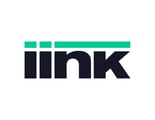Account security is crucial to protecting your personal information and ensuring the safety of your data within the iink platform. Login credentials are unique to each user and should be kept confidential.
Is it okay to share my login with someone else?
Sharing your login is not recommended and is against security best practices. Your login credentials are personal and unique to you, and sharing them can compromise the security of your account and personal data. Login information should be kept confidential to prevent unauthorized access and potential data breaches. If others need access to information within iink, consider setting up additional authorized accounts or using team collaboration features instead of sharing your personal login.
Common Reasons for Sharing Logins (and Secure Alternatives)
1. Team Collaboration:
If you’re working with a teammate or colleague and want to give them access, look for team permissions or role-based access features rather than sharing your login credentials.
2. Access During Absences:
For situations where you might be unavailable, check if you can designate a backup user with their own login credentials instead of sharing your login details.
3. Convenience:
If quick access to shared information is needed, use secure file-sharing or collaborative document features instead of exposing your account by sharing credentials.
Will iink ever ask for my MFA Code? And, should I share it?
iink will never ask for your MFA code. Your MFA code is a personal security measure designed to confirm your identity during login. Sharing your MFA code is highly discouraged, even if requested by someone claiming to be from iink, as this could lead to unauthorized access.
Here’s why iink will never ask for these codes:
-
Personal Verification: MFA codes are intended to confirm your identity alone. They are generated solely for you to use during secure login sessions, acting as a second form of identification beyond your password.
-
Privacy and Security Standards: iink adheres to strict security protocols that prohibit requesting or storing MFA codes from users. These standards are in place to protect your account and to ensure that access to your information remains private.
-
Risk of Phishing and Fraud: Requesting MFA codes opens the door to potential phishing scams or fraud attempts. By maintaining a policy of never asking for MFA codes, iink helps you recognize any fraudulent attempts to gain access to your account. If anyone claiming to be from iink requests your MFA code, you can be confident it is not a legitimate request.
-
Secure Login Process: The only time you should enter your MFA code is when logging in securely on the official iink platform. This ensures that only you have access to the code in real-time, minimizing exposure to threats and keeping your information secure.
Reminder: Never share your MFA code with anyone—whether over the phone, through screenshots, email, chat or in any other form. This code is designed to protect your account and should only be used by you during a secure login.
Important Security Reminder:
Never share your MFA code under any circumstances. If someone contacts you requesting your MFA code, do not provide it—this is likely a phishing attempt. Only enter your MFA code on the official iink platform.
For both your login credentials and MFA codes, it’s essential to maintain confidentiality. Utilize team collaboration options for secure sharing, and remember that your MFA code is strictly for personal use during login.
Avoid sharing your login. Instead, iink offers ways to securely share access or information with others, such as adding members to your company profile. This helps protect your account while allowing secure collaboration.
Related Articles
